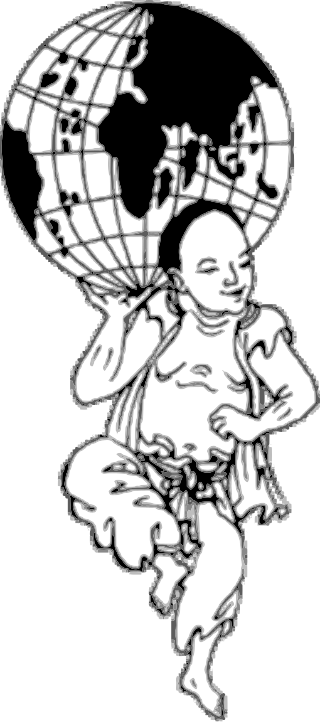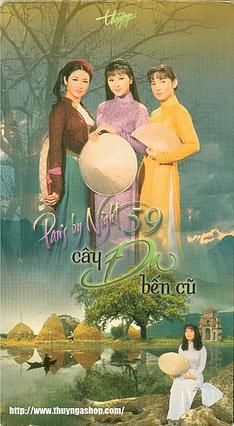
Võ Chí Công was a Vietnamese Communist politician, and the Chairman of the Council of State of Vietnam between 1987 and 1992. He was the Standing Deputy Chairman of the National Front for the Liberation of South Vietnam from 1962 to 1976.

Phan Khắc Sửu was a South Vietnamese engineer and politician who served as a minister in Bảo Đại's government of the State of Vietnam and as a civilian Chief of State of South Vietnam from 1964–65 during the rule of the various military juntas.

Quảng Ngãi is a city in central Vietnam. It serves as the capital city of Quảng Ngãi Province. Quảng Ngãi City borders Tư Nghĩa District to the south and west, Sơn Tịnh District to the northwest and Bình Sơn District to the north. It has an area of 160,15 km² and population of 260,252 inhabitants.

Phan Châu Trinh, courtesy name Tử Cán (梓幹), pen name Tây Hồ (西湖) or Hi Mã (希馬), was an early 20th-century Vietnamese nationalist. He sought to end France's colonial occupation of Vietnam. He opposed both violence and turning to other countries for support, and instead believed in attaining Vietnamese liberation by educating the population and by appealing to French democratic principles.
Phan Khôi was an intellectual leader who inspired a North Vietnamese variety of the Chinese Hundred Flowers Campaign, in which scholars were permitted to criticize the Communist regime, but for which he himself was ultimately persecuted by the Communist Party of Vietnam.

Emperor Quang Trung or Nguyễn Huệ, also known as Nguyễn Quang Bình, was the second emperor of the Tây Sơn dynasty, reigning from 1788 until 1792. He was also one of the most successful military commanders in Vietnam's history. Nguyễn Huệ and his brothers, Nguyễn Nhạc and Nguyễn Lữ, together known as the Tây Sơn brothers, were the leaders of the Tây Sơn rebellion. As rebels, they conquered Vietnam, overthrowing the imperial Later Lê dynasty and the two rival feudal houses of the Nguyễn in the south and the Trịnh in the north.

The Tonkin Free School was a short-lived but historically significant educational institution in Hanoi that aimed to reform Vietnamese society under the French protectorate during the beginning of the 20th century.

Huỳnh Thúc Kháng, also known as Cụ Huỳnh, was a Vietnamese anti-colonial activist, statesman and journalist, most notably serving as Acting President of Vietnam and President of the Annamese House of Representatives.

Nguyễn Quyền (1869–1941) was a Vietnamese scholar-gentry anti-colonial revolutionary activist who advocated independence from French colonial rule. He was a contemporary of Phan Bội Châu and Phan Chu Trinh, and one of Tonkin Free School's founders.
Nguyễn Tiểu La, born Nguyễn Thành was a Vietnamese scholar-gentry anti-colonial revolutionary activist who advocated independence from French colonial rule. He was a contemporary of Phan Bội Châu and Phan Chu Trinh. He was imprisoned by the French and died in custody. Today in Vietnam, he has streets and schools named in his honor.

Nguyễn Đình Chiểu was a Vietnamese poet who was known for his nationalist and anti-colonial writings against the French colonization of Cochinchina, the European name for the southern part of Vietnam.

Paris By Night 59: Cây Đa Bến Cũ is a Paris By Night TV program produced by Thúy Nga that was filmed at CBC Toronto Studios - Studio 40, Toronto, Canada in 2000. Nguyễn Ngọc Ngạn was the master of ceremonies for this program. This was a volume in the series Paris By Night that did not include a comedy skit or have something known as a "Hài Kịch". The DVD version of Paris By Night required only a single disc, while the VHS version is a three-tape set. This program had no audience. On April 25, 2019, the show was uploaded in its entirety to the official Thúy Nga Productions YouTube channel.

The Catholic Bishops' Conference of Vietnam is the episcopal conference of the Catholic bishops of Vietnam. Initially created in 1960s for South Vietnam, and officially re-founded in 1980 after the reunification of Vietnam, the CBCV is composed of all active and retired members of the Catholic hierarchy in Vietnam. The current president of CBCV is Joseph Nguyễn Năng, Archbishop of Ho Chi Minh City.
The Hồ Chí Minh Prize is an honorary award given by the government of Vietnam in recognition of cultural and/or scientific achievement. The prize was established by decree in 1981, and has been awarded in 1996, 2000, 2005 and 2012, often posthumously. The prize is named for Ho Chi Minh, who was Chairman and founder of the Workers' Party of Vietnam, that is considered one of the highest honors bestowed by Vietnam.
The following is a list of political organizations and armed forces in Vietnam, since 1912:

Daiviet Populist Revolutionary Party, Vietnamese: Đại-việt Duy-dân Cách-mệnh Đảng, Việt Duy-dân Đảng), was a nationalist and anti-communist political party and militant organisation that was active in Vietnam 1943–1947.
The Tale of Từ Thức Marrying a Goddess or Từ Thức Meeting Gods is a Vietnamese legend told in Truyền kỳ mạn lục by Nguyễn Dữ in the 16th century and based on the Folktale of Từ Thức Cave. It follows the life of Từ Thức in the Trần Dynasty who meets and marries a goddess in the godly realm before leaving his wife to revisit his hometown, unaware that countless ages has passed in the mortal world since then.
The 4th Central Committee of the Communist Party of Vietnam (CPV) was elected at the 4th CPV National Congress. It elected the 4th Politburo and the 4th Secretariat.
The 3rd Central Committee of the Workers' Party of Vietnam (WPV) was elected at the 3rd WPV National Congress. It elected the 3rd Politburo and the 3rd Secretariat.












